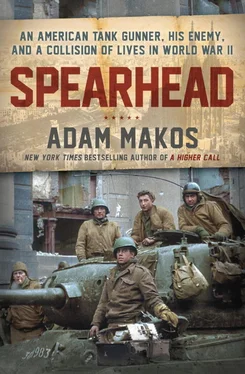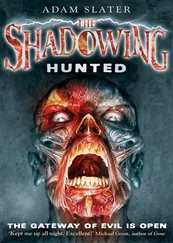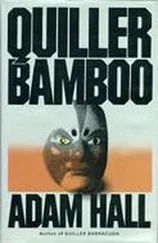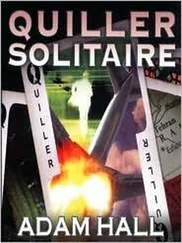Almost as quickly as they had appeared, the enemy stopped coming over the hill.
“Cease fire!” Paul shouted.
Clarence lifted his foot and caught his breath. From above the turret, Paul gazed upon a massacre. More than a dozen German bodies dotted the slope and survivors limped away, dragging their wounded. The enemy attack appeared uncoordinated, desperate, and blundering. But it was over. Or so Clarence hoped.
—
Within thirty minutes, engines revved behind the Sherman.
An American M3 half-track armored personnel carrier pulled up, followed by an M8 Greyhound, a scout car with a 37mm gun. A squad of armored infantrymen leaped from the half-track and took up firing positions. Known to the tankers as “doughs,” in homage to the “doughboys” of World War I, they were the division’s infantry arm and often rode tanks or half-tracks into battle. The reinforcements that Paul asked for had arrived.
A sergeant stood in the Greyhound’s open turret, gripping a machine gun.
Paul was about to brief the reinforcements when popping sounds came from the ridge, as if the Germans were opening champagne bottles.
Shouts of “Mortars!” resounded through the sunken road. The doughs took cover. Paul slammed the hatch cover to secure the turret. From his seat, Clarence heard shells whooshing down. Explosions and shrapnel thumped the tank’s steel hide. With the Sherman blocking their route homeward, this was the Germans’ reply.
Above the chaos of the barrage came bone-chilling screams. The horrifying sounds leaked through the cracks into the turret. Clarence twisted in his seat, wanting to plug his ears and bury his head. Something terrible was happening outside. The shells kept bursting as the screams cycled up into inhuman wails.
A hand shook Clarence by his shoulder. “Clarence, you’re in charge!”
Clarence turned and found Paul swapping his tanker’s helmet for a steel pot. He was going out there.
Paul grabbed his Thompson and opened his hatch. The cacophony of battle flooded the tank.
Clarence sprang from his seat and grabbed Paul’s leg, desperately trying to hold him back from something foolhardy. No stranger’s life was worth throwing away his own.
“We gotta help those guys!” Paul shouted, and kicked free from Clarence’s grasp.
Clarence rose from the turret and spotted Paul running through dark smoke, toward the source of the cries.
The Greyhound had taken a direct hit into the turret and the men inside were suffering.
The sky whistled as a fresh round of mortar shells rained down.
Clarence hollered—“Get back here, Paul!” But Paul didn’t look back as he rushed through the inky haze, determined to save what lives he could.
A dark streak punched the road with a burst of orange and a shockwave of smoke. Another orange burst leapt from the road, then another. Clarence ducked from the force of the blasts, which were so strong that they blew the leaves off the surrounding trees. He rose back to eye level. Paul had almost reached the Greyhound when a mortar shell landed to his right. The explosion lifted him from his feet and flung him askew through the smoke. Clarence’s legs became weak at the sight and he collapsed into the turret.
The barrage soon lifted. Clarence stood and frantically searched for his friend.
Paul had landed almost upside down on a bank. The blast had shattered his arm, and his right leg had been blown completely off below the knee.
Clarence stared, horror-struck.
This can’t be happening.
He fumbled for the pork chop and called company headquarters, stuttering, and begging for any medics they could spare.
Before Clarence could move to Paul’s aid, a rifle barked. Then more rifles joined in, crackling like a string of firecrackers. The doughs fired feverishly in the direction of fresh silhouettes pouring over the ridgeline. The timing couldn’t have been worse. The Germans were back in force.
On the intercom, Clarence heard his crew panicking, some wanting to drive away. He was the ranking crewman; they wanted to know what to do.
Clarence felt an emotion welling, one he barely recognized. He glanced at Paul. His friend still hadn’t stirred.
Dropping back into the gunner’s seat, Clarence told the crew, “We aren’t going anywhere.”
He swung the turret into action.
The Germans were moving tactically, hitting the dirt every few yards then advancing and repeating. Clarence’s foot smashed down on the trigger. The coaxial hammered, spitting a tracer downrange every four bullets, venting his rage.
The manual instructed gunners to fire in bursts, but Clarence still thought with the instincts of a loader. He swept the hose of fire across the enemy. There were so many silhouettes, he nearly stood on the machine gun button.
The gun consumed one belt of ammunition after another as the loader kept them coming. When Clarence finally lifted his foot, the gun didn’t stop, it kept firing every few seconds. He’d overheated it and now heat was flowing back from the red-hot barrel and “cooking off” the bullets.
“Turn the belt!” Clarence shouted to the loader. The loader twisted the bullets and jammed the gun by hand.
Clarence yelled for a “barrel change.” Using asbestos gloves, the loader could unscrew the barrel—but it would take time. Time they didn’t have facing the enemy’s onslaught.
Clarence emerged from the commander’s hatch and swung the roof-mounted machine gun into play.
Now halfway down the field, the Germans were coming into focus. Clarence could see their camouflaged smocks, wire helmet netting, and faces shouting orders or contorted with fear.
Taking the grip hand over hand, Clarence resumed firing, this time in bursts.
Germans fell. His bullets danced across the dirt and through them. It was impossible to tell who had been hit and who was taking cover.
The gun rhythmically shook its mount. The belt of bullets sank lower and lower until the box was empty and the gun was silently smoking. Clarence grabbed the pork chop. He needed the coaxial but the loader was saying he needed more time.
The Germans seized upon the lull to strike back. Bullets began pinging off the tank and buzzing from the turret, forcing Clarence lower in the hatch.
Frantic voices drew Clarence’s attention. Two young doughs lay behind the tank as bullets sliced the air above the sunken road. They begged for permission to hide beneath the tank.
“Fine,” Clarence said, but with a disclaimer: “If you hear the engine revving, get the hell out of there!”
The doughs disappeared beneath the tank.
The Germans were back up on their feet and charging. As they raced toward the tanks, the loader came on the intercom. The coaxial was ready. Clarence returned to the gunner’s seat and pressed his eyes to the periscope. The enemy was closer than ever, seventy-five yards, then sixty, fifty…
Clarence heard voices beneath him. Somehow, over the engine’s idling and the crackle of gunfire the voices rose through the tank’s hollow confines. It was the young doughs beneath the hull, making promises to God if he’d only save them now.
Clarence violently stepped on the trigger and drowned out their prayers with gunfire.
—
The field in front of the tank was a graveyard.
Morning had become afternoon and the cacophony of battle had faded.
The remains of German soldiers littered the slope to the ridgetop. From the midst of the motionless gray and green lumps, those left alive were struggling to step over fallen comrades on their way down to surrender.
“You Americans don’t want to fight,” said one prisoner, “you just want to slaughter us.”
Countless scenes like this played out across Mons.
Читать дальше









![Adam Turvi - Возвращение [СИ]](/books/422738/adam-turvi-vozvrachenie-si-thumb.webp)


